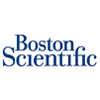
Boston Scientific (NYSE:BSX) said it won CE Mark approval for its Synergy drug-eluting stent, with a bioabsorbable coating designed to deliver the drug everolimus over the 3 months it takes to dissolve.
The company said Synergy is slated for limited release in the European Union and elsewhere by early 2013, with a broader commercial launch on deck for early 2014. The stent is built on Boston Scientific’s platinum-chromium chassis, which the Natick, Mass.-based medical device company touts as more visible under X-ray and able to be built with thinner, more flexible struts.
The CE Mark application was based on BSX’s Evolve trial comparing the Synergy device with its Promus Element DES. The Synergy’s coating is applied only to the exterior of the stent, whereas the Promus Element’s coating is applied to the interior and exterior.
Sign up to get our free newsletters delivered straight to your inbox
Limiting exposure to the polymer, the result of a 7-year R&D program, according to a press release, helps reduce the risk of late adverse events associated with prolonged exposure.
Kevin Ballinger, president of BSX’s interventional cardiology division, called the Synergy "a premium workhorse drug-eluting stent that eliminates long-term polymer exposure, promotes optimal healing and provides confident deliverability" in prepared remarks.
The 291-patient Evolve study compared 2 versions of the Synergy device with the Promus Element. One of the Synergy arms received stents coated with a half-dose of everolimus, the other with a full dose. Results from the study, published in the April issue of the Journal of the American College of Cardiology, showed that the Synergy stent met its primary safety endpoints (target lesion failure at 30 days) and its efficacy endpoints (in-stent late loss at 6 months). Boston Scientific said the Synergy device posted a target lesion revascularization rate of 1.1% and a 0% rate of stent thrombosis after a year.
The company is planning a 2nd, 1,684-patient trial, Evolve II, to support applications for approval in the U.S. and Japan, according to the release, and "anticipates additional studies to assess outcomes, including the potential for reduced dual antiplatelet therapy."

